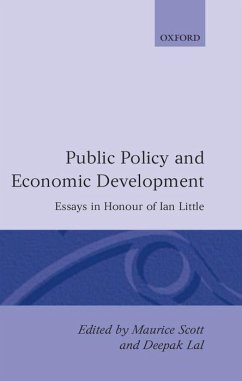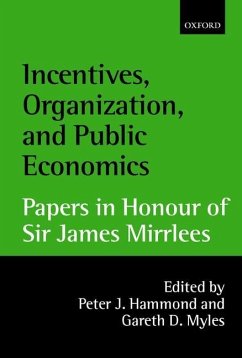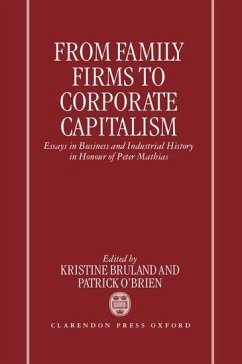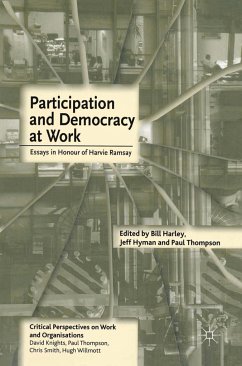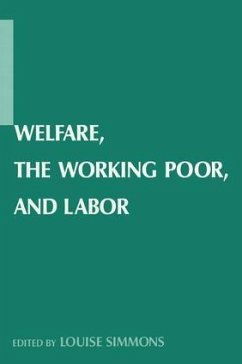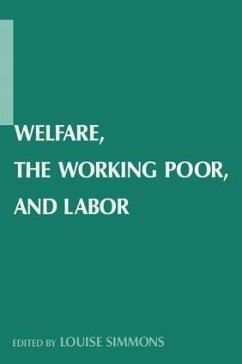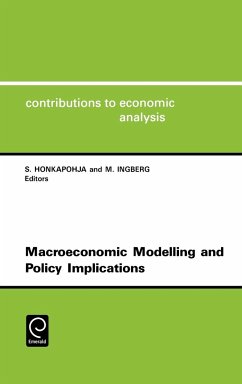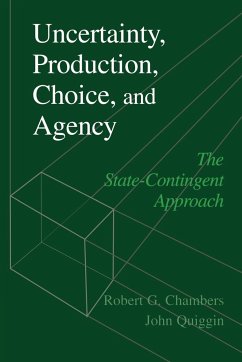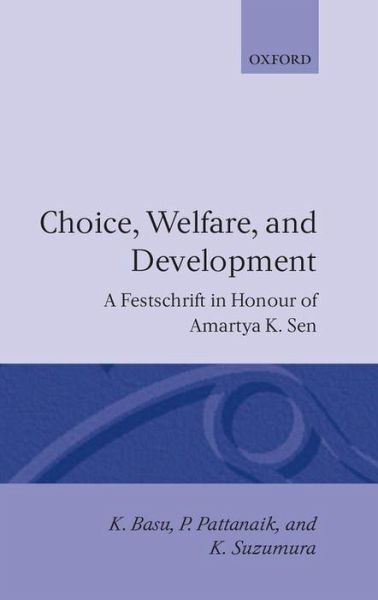
Choice, Welfare, and Development
A Festschrift in Honour of Amartya K. Sen
Versandkostenfrei!
Versandfertig in 1-2 Wochen
133,99 €
inkl. MwSt.

PAYBACK Punkte
67 °P sammeln!
Professor Amartya Sen has been a distinguished and influential scholar in development economics for over twenty years, and this edited volume seeks to reflect his interests, and the inspiration he has provided for others. The editors have succeeded in creating a coherent and stimulating set of papers from well-known contributors. The volume deals with the enduring themes of Amartya Sen's work, ranging through theoretical issues of development economics to the philosophical foundation of welfare systems, and ethics in society. Contributors: Kenneth Arrow, A. B. Atkinson, Pranab Bardhan, J. L. Coles, Rajat Deb, Jean Dreze, Louis Gevers, Peter Hammond, Ravi Kanbur, Eric Maskin, Robert Nozick, Siddiq Osmani, Martin Ravallion, Kevin Roberts, Robert Solow, S. Wibaut
Professor Sen is one of the few economists whose research straddles the expanse of the subject and he has worked and written in an astonishingly large number of areas. In acknowledgement of the varied interests encompassed by Professor Sen's work which would be impossible to represent in a single volume, the editors have chosen to concentrate on welfare economics to which Sen has made a seminal contribution. Thus two related strands in his work are reflected in this volume. Both are based in welfare economics, but one develops the more theoretical aspects of social choice theory, while the other is more concerned with the application of welfare economics in the context of developing economies. The opening essay formalises the concept of 'capabilities' developed by Sen, and is a particularly apt contribution, since it illustrates the possibility of blending developmental concerns with welfare economics. Other subjects tackled include the analysis of a general equilibrium model which relates to the problems of entitlements discussed by Sen in the context of famines; the rationality of choice behaviour; the problem of redistribution; individual decision-making and the symbolic value of actions; an original theorem on dictatorship; issues relating to local community-level co-operation in water allocation and management; a study of primary education in two villages in India and China; the relation between total household resources and intra-household inequality; the vulnerability of households to aggregate shocks; and the issue of mass unemployment.





